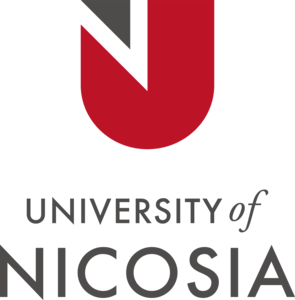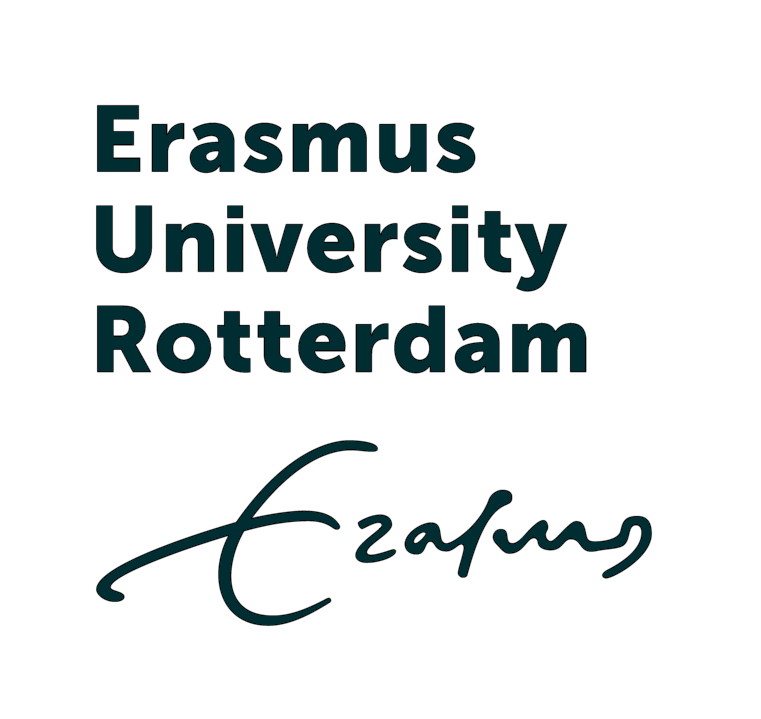How to Study Abroad for Free
Studying abroad is a unique opportunity to gain new perspectives, develop intercultural skills, and broaden your personal and academic horizons. However, the financial aspect can be daunting for many.
But there are ways undergraduate students can overcome this obstacle and make their dream of studying abroad a reality—even without the finances.
Let’s dig deeper and explore strategies for you to study abroad for free.
Why Studying Abroad Might be Good for You
A study abroad program is one of the most fulfilling experiences for any college student. You learn in a foreign country and take in new cultures and soak in the appeal of the new land.
Here are four more reasons that support this decision:
- Helps improve language learning—Only 25% of American adults can speak another language other than English. Students studying abroad have better language proficiency than those learning the same domestically.
- Better employability and career skills—Students coming from foreign universities acquire valuable skills that employers prefer. Modern businesses understand the value of hiring individuals with cross-cultural understanding in the current global economic environment.
- Improved chances of completing your program—College students in foreign countries are more likely to complete their certificate programs or degrees than those who don’t. Further, these students also earn a high GPA.
- Better problem-solving skills—Exposure to new challenges teaches students to create new solutions.
- Better adaptability—Studying in a foreign country can be challenging. It tests your capacity to cope with new situations and experiences. Adapting to these circumstances is a highly valued soft skill in anyone’s professional and personal life.
Tuition Fees and Other Financial Challenges
Many people view studying abroad as a luxury for the wealthy. Not necessarily. But the opportunity can be costly, and the expenses are a significant barrier for many students.
Some expenses involved include:
- Tuition fees charged
- Accommodation costs
- Travel expenses
- Health insurance
- Visa fees
- Registration fee
- Financial support while studying
However, studying abroad for free or at a low cost is possible with the right strategies and resources. Read on for how your studies abroad can be a reality without the financial strain.
Top 8 Strategies to Study Abroad for Free

One secret to offsetting the costs of learning abroad is knowing that most of what you pay for is ease and peace of mind. International study programs will charge extra when helping you find accommodation, process the visa, and help enroll in foreign campuses. Taking on some or all these tasks will help make the experience much more affordable.
Here are eight ways to cut costs even as you look for the best places to study in Europe.
Look for Free Study Abroad Programs
A free study program covers most, if not all, of the expenses studying abroad requires. These study-related costs include transportation, room and board, and charge tuition fees. Private entities, universities, non-profit organizations, and the government fund these specialized programs.
A few examples of reputable study abroad programs include:
- The Fulbright Program—A prestigious program that offers full scholarship funding for students working on their studies abroad. The primary funding source is an annual appropriation from the U.S. Congress to the Department of State’s Bureau of Educational and Cultural Affairs.
- Erasmus+ Program—The EU-funded initiative provides students with fully-funded opportunities to study in European countries. Students from European Union member countries and others such as the U.S. and Canada are eligible for Erasmus+.
- Critical Language Scholarship (CLS) Program—This U.S. Department of State initiative covers most living and administration costs associated with intensive language study abroad. However, it only accepts less than 10% of applicants.
Want to study abroad without the price tag? Start with research about free study programs available. Some research tips to help you include:
- Start your research early so you have enough time to find and apply for the programs
- Use online resources such as the Institute of International Education (IIE)
- Consult your study abroad office for information on initiatives likely to be a good fit
Research Scholarships and Grants for International Students
Studying abroad can be expensive, but many scholarship and grant opportunities can help offset the costs of your program. These financial aids are available to students to support their education abroad.
However, they are also more competitive than some options on this list and may not work for everyone. The aids are an increasingly critical way to pay for university education for over 80% of U.S. families.
Scholarships and grants are excellent sources of financial aid, but there are some distinct differences between the two. Understanding the options further can help you choose the type of financial aid best for your situation.
Scholarships
These are financial awards given to students depending on their achievements, talents, or academic performance. Sources include private organizations, government agencies, and universities and colleges. Students are not required to pay back the scholarships.

Major types of scholarships for international students from the U.S. include:
- Merit-based—They support students who achieve high academic achievements in their test scores or GPA.
- Athletic—The scholarships are suitable for students who excel in sports.
- Creative scholarships—These are awards to students excelling in creative fields, such as writing, art, or music.
- Need-based—A scholarship category for students who can prove financial need.
Grants
Like scholarships, grants are gifts you don’t pay back. Most grants are from federal and state governments and depend on your financial needs. The issuing body investigates your financial information, family income, and assets.
Other considerations of whether you qualify for a grant include the attendance cost at the college and how much your family can contribute to your education. Some grants are available to students pursuing specific majors, with certain interests, from a particular background or other criteria.
Most applicants fill out a Free Application for Federal Student Aid (FAFSA) to qualify for government grants. However, FAFSA is applicable when applying to specific foreign universities participating in federal student loan programs.
Apply for International Internships
A less common way to study abroad for free is through international internships. Such English language programs might not cover all your educational expenses, but they offer a unique chance to gain valuable work experience and build your professional network.
An international internship is a work experience in a foreign country. Some entities that can help organize the program include private organizations, top universities, or companies abroad.
Paid internships abroad offer a salary, which is critical when you’re covering living expenses in a foreign country. However, such programs require high-level qualifications or experience.
Unpaid internships don’t provide a salary. Instead, you get other benefits like a living expense stipend and housing. The internships have flexible requirements and qualifications.
Students must submit a few documents when applying for international internships, including:
- A passport
- Resume
- Educational transcripts
- Sometimes, a portfolio or writing sample
- Student visa
- Cover letter
- Letters of recommendation
Participate in Exchange Programs
A study abroad exchange program stems from partnerships between universities in different countries to swap students for a year or semester. You pay tuition fees and earn college credit at your respective home university.
You attend classes, participate in extracurricular activities, and live on campus like other students at a foreign university. The exchange programs are reciprocal, so students from foreign universities in the partnership can relocate to your home institution.
Factors to Consider When Looking for Exchange Program Opportunities
Choose a program that meets your requirements. Some key factors to keep in mind include:
- Location—Make sure the location of the exchange program aligns with your interests and academic goals. For example, German universities might be attractive because of their language, culture, and research experience.
- Program requirements—Review the requirements and eligibility criteria to determine if you meet program qualifications. Prerequisite coursework, language proficiency, and GPA requirements are some factors you need to consider.
- Program structure—Check out the length, course offerings, and type of institution an exchange program offers. Ensure the courses are transferable to your home university.
- The application process—Carefully review the process and deadlines. Have all the required materials and documents ready, including essays and transcripts.
- Cost—Evaluate the costs of the exchange program, including housing, tuition, and travel expenses. The scholarships and grants above can help offset some of the living costs.
Consider Working While Studying Abroad
Working as you study will help you offset some of the monthly expenses of living in a foreign country. It’s also an opportunity to gain work experience in a different country.
However, the jobs available to international students will vary depending on the country and industry. Popular part-time jobs American foreign students choose include:
- Tutoring
- Administrative positions
- Childcare
- Working in retail stores, restaurants, and cafes
A co-op program in your field of study is the best chance of finding professional opportunities. Further, many top universities have work-study programs that may allow you to work on campus in various roles.
Use Crowdfunding Platforms
Crowdfunding is an exciting way to raise funds for professional and personal projects. Crowdfunding platforms help you connect to groups or individuals who contribute to your cause. The fundraising method works for various projects, including supporting your studies overseas.
To create a successful crowdfunding campaign for abroad studies:
- Create a concise and clear project description that highlights the benefits, why it’s vital to you, and why people should support it
- Make sure you include a detailed breakdown of the costs involved for tuition, travel, and other living expenses
- Create a video that helps bring the project to life and offers potential donors a personal connection
- Provide some rewards or incentives for donors, such as postcards from your destination or regular updates on your overseas adventures via a personalized travel blog
Network With Alumni and Study Abroad Advisors
Networking is an invaluable tool for finding free study-abroad opportunities. The alums and advisors will offer excellent insights into the process and point out chances you may not have considered.
The networking strategy is also pivotal for building lasting relationships with people who can offer recommendations and support. These relationships are beneficial when you’re abroad and after returning to your home country. Study abroad advisors and alums will also recommend opportunities such as internships, grants, and scholarships.
Connect with these professionals by:
- Attending study abroad fairs and events
- Using social media platforms such as Facebook and LinkedIn
- Joining groups on social media or in person that bring together people interested in studying abroad
Study Abroad Virtually
Interconnectivity is bringing the world together, and the opportunity to participate in virtual study programs is becoming an increasingly popular option. The programs let you gain an international education from the comfort of your home.
Some benefits of studying abroad online include:
- Affordable study—You save on public transportation costs, lodging, and other expenses of traditional programs. The result is world class education at an affordable cost.
- Flexible—Online study abroad programs provide greater scheduling flexibility. You choose when and where you complete your coursework. Plus, it’s easy to fit studies around your other family and work commitments.
- Access to many programs and top universities—Virtual study allows you to explore more courses and programs in a way you wouldn’t have had before. You also have a chance to learn from experts and professionals from different cultures and countries.
- Improve your virtual skills—Enrolling as an online international student offers opportunities to improve digital literacy and virtual skills. You learn clear communication skills with other students and instructors via email, online posts, or video chats.le
- Accessibility—Virtual study abroad programs are accessible to foreign students with mobility concerns. They allow learners with medical concerns and disabilities to immerse themselves fully in global education.
Free or Affordable Study Abroad is a Reality
A four-year program at most public universities in the U.S. costs about $14,598 annually and $44,662 in private colleges. It’s no surprise that many students are looking for affordable alternatives. Studying in a country offering free education saves you from paying expensive student loan debts while getting high-quality education and traveling the world.
If this is an attractive proposal, do research, define your goals, and consider all the benefits of studying abroad for free. However, not everyone will enjoy staying away from their family and friends for years. An alternative is to choose a U.S. college and save up for a semester abroad.
Scholarships, grants, international internships, crowdfunding, and virtual studies can help ease some financial burdens. Whichever strategy you choose, take full advantage of the opportunities to realize your professional goals. Plus, the memories you create abroad are priceless!












